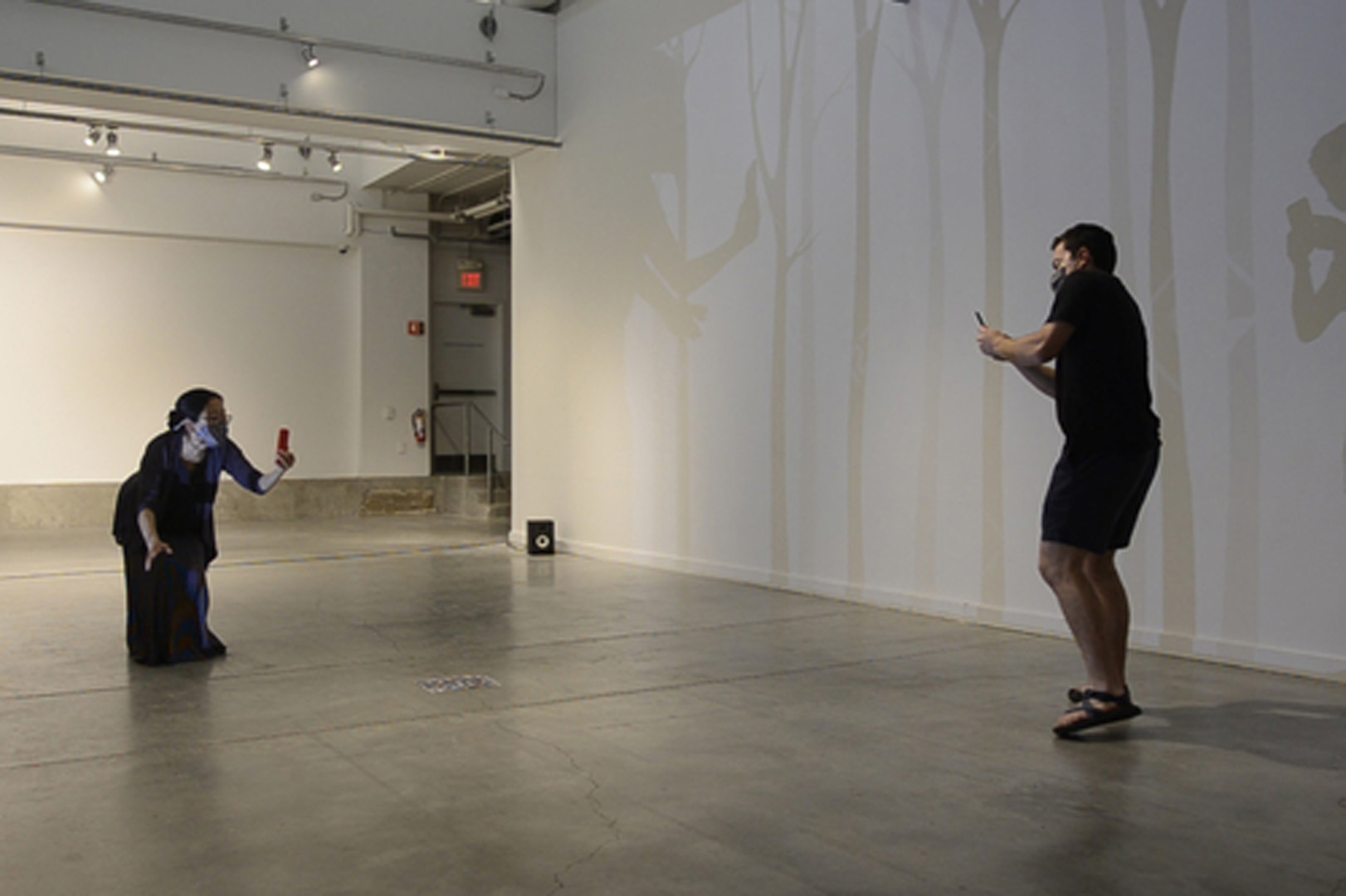“”The Woods”: A Mixed Reality Two-Player Cooperative Game” by Swearingen, Swearingen, Halac, Ammannagari and Hall
Conference:
Type(s):
Title:
- "The Woods": A Mixed Reality Two-Player Cooperative Game
Presenter(s)/Author(s):
Abstract:
While loneliness in our real lives is increasingly recognized as having dire physical, mental, and emotional consequences, cooperative games have been shown to build empathy and provide positive social impact. In this paper, the authors present “The Woods,” a local cooperative, mixed-reality game using augmented reality and 4-channel audio spatialization panning that provides players with face-to-face interactions in pursuit of a shared goal. This paper discusses the narrative, mechanical, and sonic components of the game, as well as the game’s development process and the players’ experiences. The goal of our team is to develop a narrative-driven AR game that promotes collaborative problem-solving and engages players in an emergent physical and digital experience.
References:
1. Tilde Bekker, Janienke Sturm, and Emilia Barakova. 2009. 2nd Workshop on Design for Social Interaction through Physical Play. In: Gross T. et al. (eds) Human-Computer Interaction — INTERACT 2009. INTERACT 2009. Lecture Notes in Computer Science, vol 5727. Springer, Berlin, Heidelberg.https://doi.org/10.1007/978-3-642-03658-3_1277
2. Florida Tech Online. 2020. How Smartphones Are Contributing to the Loneliness Epidemic. https://www.floridatechonline.com/blog/psychology/how-smartphones-are-contributing-to-the-loneliness-epidemic/
3. Borae Jin and Namkee Park. 2012. Mobile voice communication and loneliness: cell phone use and the social skills deficit hypothesis. New Media & Society 15, 7, 1094–1111. DOI: https://doi.org/10.1177/1461444812466715
4. Dhruv Khullar. 2016. How Social Isolation Is Killing Us. New York Times. https://www.nytimes.com/2016/12/22/upshot/how-social-isolation-is-killing-us.html
5. Mixedbag Srl. 2020. Secret Oops!
6. Niantic. 2018. Codename Neon.
7. John Velez. 2015. Extending the theory of bounded generalized reciprocity: an explanation of the social benefits of cooperative video game play. Computers in Human Behavior 48, 481–491. DOI: 10.1016/j.chb.2015.02.015





